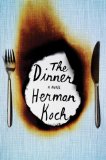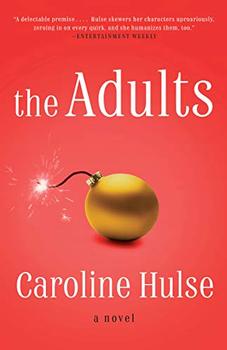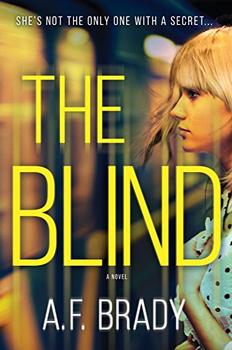Summary | Excerpt | Reading Guide | Reviews | Beyond the book | Read-Alikes | Genres & Themes | Author Bio

The Dinner, by Herman Koch, promises to be an interesting sort of evening. We are invited to pull up a chair beside Paul – whom his fifteen-year-old son, Michel, affectionately refers to as "Sweet Old Papa" – and join him for dinner. He needs our support, you see, for this is a meal he's dreading.
Paul is an ordinary man—he's one of us. All he wants is a simple quiet meal, alone with his beloved wife, Claire. But they are having dinner with Serge, Paul's arrogant brother and Babette, Serge's wife. It's bad enough that his brother picked the restaurant—an upscale overdone place with an elitist atmosphere. As a currently unemployed school teacher, Paul notices the excessive cost of each item on the menu. To make things worse, Serge and Babette arrive predictably late. Paul and Claire watch as the restaurant staff fuss over Serge since he is the leading candidate for Prime Minister of Holland.
But the biggest problem is the reason for this evening's engagement. These two couples are here because they need to talk about their teenaged children, who have gotten themselves involved in a bit of trouble.
The Dinner is a sneaky kind of novel. When finally, the truth is revealed as to exactly what Michel and Rick have done, we realize how difficult it is to assess facts. The clues have been there all along, right from the beginning, but we didn't recognize them for what they were. By the time the main course arrives, it's near impossible to know whom to believe and trust – and what must be done after dessert is finished.
This dark and sinister story explores family relationships and loyalties. Although The Dinner takes place over one meal, there is plenty of tension and conflict to keep the story riveting. We can tell Paul is keeping secrets from everyone at the table, even from his wife, Claire. However, it turns out each one of them is hiding something. As the night goes on, and we learn the history of these brothers and their families, slowly but surely we realize nothing is as it first appears. The slow reveal of information invites us to question our assumptions. Perhaps there is something more than worry for his son's future behind Paul's irritation with the restaurant staff.
However, once the characters leave the restaurant, the tightly woven tale unravels a bit and steps into a slightly different realm, crossing an even darker threshold. I think I would have preferred a more ambiguous ending, keeping the story within the walls of the restaurant. Having a feeling of uncertainty so convincingly established, I would have preferred to wonder and debate what happened next.
Provocative and unsettling, this novel explores parental responsibility for their children's behavior, as well as the extreme lengths a parent would go to protect his or her child. But also, it suggests we face the fact that evil might not be easy to recognize. It might seem familiar and ordinary. It might lurk in places we'd never suspect. Evil just might be sitting across the dinner table.
![]() This review was originally published in The BookBrowse Review in February 2013, and has been updated for the
October 2013 edition.
Click here to go to this issue.
This review was originally published in The BookBrowse Review in February 2013, and has been updated for the
October 2013 edition.
Click here to go to this issue.

If you liked The Dinner, try these:

by Caroline Hulse
Published 2019
A couple (now separated), plus their daughter, plus their new partners, all on an epic Christmas vacation. What could go wrong?

by A.F. Brady
Published 2018
A razor-sharp debut about a woman who goes so far off the deep end, she might never make it back up…
Your guide toexceptional books
BookBrowse seeks out and recommends the best in contemporary fiction and nonfiction—books that not only engage and entertain but also deepen our understanding of ourselves and the world around us.